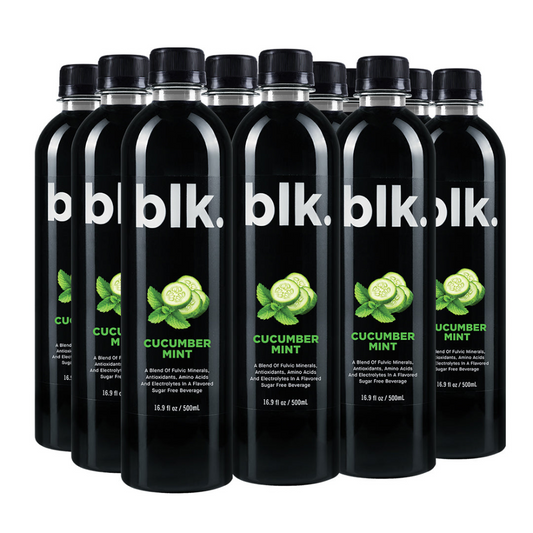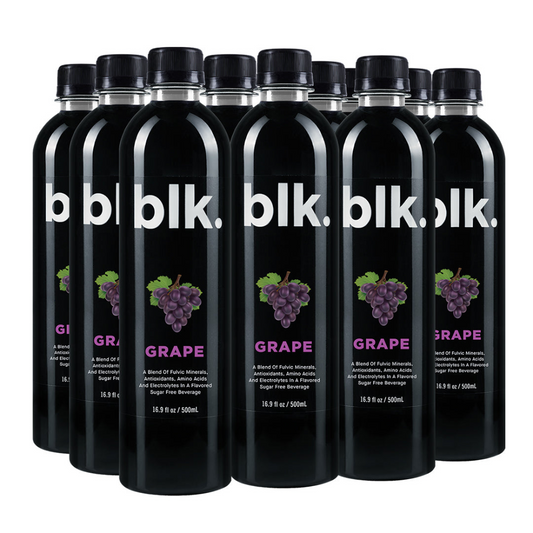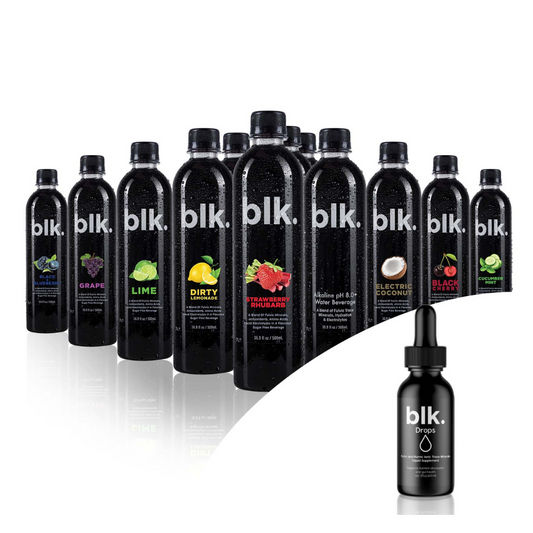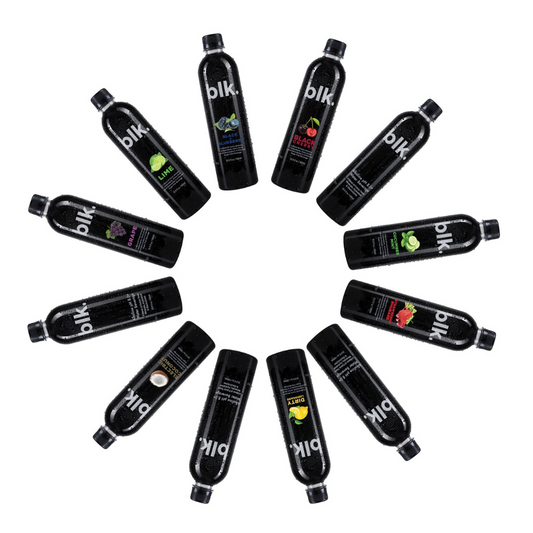
Types of Protein Bars: Which One is Right For You?
This Guide Seeks to Provide Information About:
- The various types of protein bars.
- Benefits of protein bars.
- How protein bars compare to protein powder.
- How to choose the right protein bar for your needs.
Protein bars are becoming popular snack and supplement options among gym enthusiasts, especially those looking to boost their protein intake easily. Some available flavors and types of protein bars include whey, plant-based, and snack bars with added protein. The kind of protein bar you choose depends on your dietary restrictions and goals, such as weight management, building muscle, or boosting energy levels.
Fitness enthusiasts consume protein bars in different forms. You can use protein bars as a pre or post-workout snack, meal replacement, or a healthy on-the-go snack. If you are also considering including protein bars in your protein diet, read this guide from ripped.com, the leading online store in US selling high quality health supplements. This guide dives into the different types of protein bars, their benefits, the best protein bar for 2023, and how you can integrate them into your diet.
What Are Protein Bars?
Protein bars are dietary supplements designed to be a convenient protein source. Most people opt for protein bars since they are a faster way of adding proteins, especially if you have an active and busy lifestyle. The numerous protein bars in the U.S. market mean you must learn what makes them different.
Types of Protein Bars Available Online
Protein bars can be categorized according to their protein sources. This includes whey protein bars and soy protein bars.
Other bars are categorized based on the allergens omitted or their organic nature. An example includes vegan protein bars and gluten-free protein bars.
Another category of protein bars is based on their roles, such as meal replacement bars, snack bars, and recovery bars.
Whey Protein Bars
Whey protein-based nutrition bars are popularly used as athletic food, emergency food, military food, and space food. The high nutritional benefits of whey protein make whey protein bars a popular protein source.
Whey protein bars may increase calcium, fiber, iron, potassium, and vitamin B levels in your body. They may also aid in muscle mass gain. Some of the best whey protein bar products include the following:
- Baked Whey Protein Bars - 9 Bars
- Alani Nu Fit Snacks Protein Bars - 12 Bars
- Barebells Protein Bars - 12 Bars
- Outright: Toffee Peanut Butter 12 Servings
- Nxtbar: Variety 12 Pack
Soy Protein Bars
Soy protein bars are becoming common among athletes and those looking to avoid animal and lactose-based products, such as vegans and vegetarians. Their high biological value distinguishes soy protein bars from other plant-based protein supplements.
Biological value denotes the amount of food protein converted into your body’s protein. With a biological value of approximately 80, soy protein provides all the vital amino acids your body requires to reduce muscle strain and improve fitness.
Top 3 soy protein bar products include the following:
- Think!: High Protein Bars Chocolate Fudge 10 Servings
- Think!: High Protein Bars Creamy Peanut Butter 10 Servings
- Promax: Protein Bar Nutty Butter Crisp 12 Servings
Soy Protein Bars Recipe: If you prefer homemade soy protein bars, here is a quick recipe for our readers.
Ingredients
- 1/4 cup of soy protein powder
- 1/4 cup of old-fashioned rolled oats
- 3/4 cup of whole grain oat flour
- 1/4 cup of chocolate chips
- 1/4 cup of peanut butter
- 2 tbsp of maple syrup
- 2 tbsp of flaxseed meal
- 1/4 cup of peanut butter
- 2 tbsp of sliced almonds toasted
- 1 tsp of vanilla extract
- 1/4 cup of water
Instructions
- Mix maple syrup, peanut butter, vanilla extract, and water in a bowl until it becomes smooth. Continue mixing while adding oat flour, flaxseed meal, soy protein powder, and rolled oats until they combine.
- Add the mixture to a baking pan; spread the mixture evenly.
- Gently heat the chocolate chips in a separate saucepan until they melt. Then pour the chocolate over the mixture in the baking pan.
- Add the toasted sliced almonds evenly.
- Transfer the baking pan to a refrigerator for approximately 10 minutes.
- Cut it into several bars keeping your required daily dosage in mind.
Vegan Protein Bars
The best vegan protein bars will most likely contain pea protein powder with numerous health benefits. Pea protein is also popular since it is a complete protein source with additional nutrients such as iron, magnesium, and zinc. Unlike some other protein forms, pea protein is easily digestible and does not cause digestive issues or stomach upsets.
Some best-selling vegan protein bars include:
- No Cow.: Blueberry Cobbler Protein Bars 12 Servings
- No Cow.: Chocolate Glazed Doughnut Protein Bars 12 Servings
- Outright: Breakfast Waffles & Syrup Peanut Butter 12 Servings
- No Cow.: Protein Bar Raspberry Truffle 12 Servings
- No Cow.: Protein Bar Birthday Cake 12 Servings
- One: Oneplant - Churro Flavored Protein Bar 12 Servings
- Outright: Breakfast Mochaccino White Chocolate Peanut Butter 12 Servings
Criteria For Choosing the Best Vegan Protein Bars
Some of the factors to consider when purchasing vegan protein bars include the following:
- Nutritional Value: The whole point of consuming protein bars is to increase your protein intake. But then you should also check if the product has other ingredients with high nutritional value benefiting your vegan diet.
- Ingredient Quality: Ensure that the protein bar you are consuming is minimally processed and does not include a lot of additives (flavors & sweeteners) or preservatives.
- Price: Remember to stick within your preferred budget. Choose good brand protein bars that are value-for-money deals.
Gluten-Free Protein Bars
Most protein bars contain wheat as an ingredient, thus making it difficult to find gluten-free protein bars. But then, this does not mean protein supplements without gluten do not exist. Some of the gluten-free bars include:
- True Protein Bars - 12 Bars
- Baked Whey Protein Bars - 9 Bars
- No Cow.: Blueberry Cobbler Protein Bars 12 Servings
- Clif Builder's Protein Bars - 12 Bars
- No Cow.: Chocolate Glazed Doughnut Protein Bars 12 Servings
- One: Protein Bar Cookies & Creme 12 Servings
- Nxtbar: Chocolate Coconut 12 Servings
- Legendary Foods - Sweet Rolls Cinnamon 8 Pack
Different Types of Protein Bar Uses
Meal Replacement Bars
If you are planning to skip your breakfast or lunch replacing it with protein bars, look for the following ingredients:
- Protein - 20 to 30g
- Calories - 250 to 400g
- Carbs - 30 to 45g
- Fiber - 3 or more grams
- Fat - 7 to 17g
Popular meal replacement bars include:
- Big 100 Protein Bars - 9 Bars
- Redcon1: Mre Bar Meal Replacement Snickerdoodle 12 Servings
- Redcon1: Mre Bar Chocolate Mint 12 Servings
- Redcon1: Mre Bar Sprinkled Donut 12 Servings
- Redcon1: Mre Bar Peanut Butter Jelly 12 Servings
- Redcon1: Bar Peanut Butter Cup 12 Servings
- Redcon1: Mre Bar Crunchy Peanut Butter Cup 12 Servings
Snack Bars
This is the best option, especially for pre-workout snacking or when you know, you will take longer before you consume your next meal (long flights or road trips). Snack bars also offer optimal convenience.
Popular snack bars include:
- Alani Nu Fit Snacks Protein Bars - 12 Bars
- Barebells Protein Bars - 12 Bars
- Packed Protein Crisp Bars - 12 Bars
- Think!: Protein+ 150 Calories Bars S'Mores 10 Servings
- Pure Protein: Birthday Cake 6 Servings
- Promax: Protein Bar Lemon Bar 12 Servings
Recovery Bars
You need an energy-boosting and muscle-rebuilding supplement after a tough workout. Recovery protein bars help you replenish your energy while also stimulating muscle repair.
Popular recovery protein bars include:
- Big 100 Protein Bars - 9 Bars
- Clif Builder's Protein Bars - 12 Bars
- Pure Protein: Birthday Cake 6 Servings
- One: Protein Bar Chocolate Brownie 12 Servings
- One: Blueberry Cobbler Flavored Protein Bar 12 Servings
- One: Peanut Butter Pie Flavored Protein Bar 12 Servings
Why Are Protein Bars Important?
Protein bars have a role in several bodily functions and structures.
People prefer protein supplements over protein foods because they easily fulfil the recommended daily serving. It is difficult to regulate the amount of protein intake from foods like eggs, nuts, fish, and meat compared to protein supplements. The protein bars’ labels contain serving instructions and the amount of protein you ingest in one scoop.
Protein bars have numerous dietary and lifestyle benefits:
Weight Management
Many people on a ideal weight journey include protein bars in their dietary routine. Some researchers suggest that the filling effects of protein may limit your appetite, thus curbing overeating. The research further suggests that taking a high-protein diet has greater effect on weight control than a standard-protein diet. You should, however, note that a regular workout and balanced diet should accompany protein supplements to achieve healthy weight.
Fuel Workout
When you supply your body with essential nutrients, you improve your workout performance. Consuming protein bars before exercise increases the energy supply your body needs during physical activities.
It also stimulates muscle recovery when consumed after workouts. The protein building blocks (amino acids) facilitate muscle repair and the generation of new muscle tissue. Workouts cause microscopic muscle tears, which is why you need to consume nutrients that support post-workout muscle rebuilding.
Muscle Gain
A diet rich in protein may aid your muscle gain efforts. Research by the American College of Sports Medicine suggests that endurance and strength-trained athletes should ingest 0.54–0.77 grams of protein per lb of body weight to maximize exercise performance.
Ready-to-Eat Source of Nutrition
Protein bars offer convenience since they are ready-to-eat snacks. They also last longer and offer vital nutrients in a variety of flavors. Whether you want to increase your protein intake, obtain high-quality ingredients, or have a midday snack, it is also found in protein bars.
The supplements also contain carbs and fat that may benefit training and muscle recovery.
You can also obtain dietary fiber from protein bars.
Protein Bars Versus Protein Powder
Protein shakes and drinks (derived from mixing protein powder with a beverage of your choice) are another popular way of increasing your protein intake. They are also used as meal replacements to curb a person’s appetite.
Similarities Between Protein Bars and Protein Powder
- Both protein bars and powders come in a variety of flavors.
- The health and lifestyle goals are similar; muscle mass gain, and fueling workouts.
- Both are easy to prepare and consume; convenient sources of nutrition.
- Both contain whey protein - what differs is the amount of whey protein in the supplement.
Differences Between Protein Bars and Protein Powder
- When it comes to preparation, homemade shakes are easier to prepare than homemade bars. The former requires just the protein powder and your favorite beverage, whereas the latter requires more time to prep, bake or cook.
- Protein bars are more nutritious than shakes. The bars incorporate extra nutrients such as healthy carbs & fats, fiber, and vitamins.
How to Choose the Best Protein Bar
When choosing a protein bar, there are certain things you should look for:
Protein Source
Generally, proteins can help you grow and repair muscles, especially after workouts. But when choosing protein bars, look for a source of protein in your protein bar that syncs well with your body's requirements and is a high-quality protein supplement.
Natural Sweeteners
Check the ingredients label for natural sugars like cane sugar, honey, or fruit. These are often used to add delicious flavors to neutralize the bitter taste of protein. Try to avoid products with artificial sweeteners.
Calorie Content
The level of calories in a protein bar depends on what you want to use it for; the ideal number should be an average of 150 to 250 calories.
Fiber
Fiber is a vital element in protein bars that brings the feeling of being full. You should go for a bar with at least 3g of fiber.
Drawbacks and Precautions
- The various options make it difficult for you to choose a good-fit protein bar.
- Some bars contain too many calories and sugar.
- Some manufacturers may use unhealthy sweeteners such as fructose corn syrup to enhance the flavor.
- Avoid using bars that contain highly processed plant oils such as canola, palm, peanut, or soybean.
- Remember that you may already consume enough protein from your regular diet. Excess consumption beyond the recommended dietary allowance may increase the risk.
Conclusion
Protein bars are a convenient (ready-to-eat) source of protein and other micronutrients like calcium, iron, potassium, and Vitamin B. But you also need to ensure that your chosen product does not contain excess calories or any ingredient you want to avoid.
It is always best you look at the ingredients label before purchasing any supplement. You should also consult a doctor if you have any allergies or medications.
Frequently Asked Questions
-
How much protein should I aim for in a protein bar?
-
Are there any potential allergens in protein bars that I should look out for?
-
Can protein bars be consumed on a ketogenic or low-carb diet?
-
Are protein bars suitable for individuals with diabetes?
-
Is it better to choose a protein bar with a high or low sugar content?




